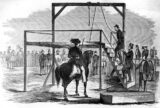When ‘Honor’—and Bureaucracy—Stand in the Way of Marriage
Indian Law Protects Intercaste and Interfaith Unions. But Many Couples Still Can’t Wed
In May 2022, a video depicting a 25-year-old man in Hyderabad being publicly murdered by his wife’s family members in retaliation for the couple’s interfaith relationship went viral on social media in India. In March 2023, a similarly shocking incident made headlines: In the southern state of Tamil Nadu, a man of the Nadar caste had killed his 27-year-old son and injured his daughter-in-law out of disapproval for his son marrying her, a woman of Scheduled Caste, often known as Dalits.
Beyond these two particularly gory cases, there are innumerable others …










